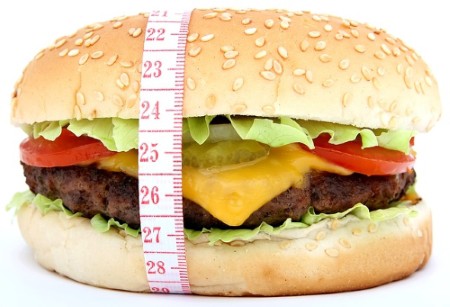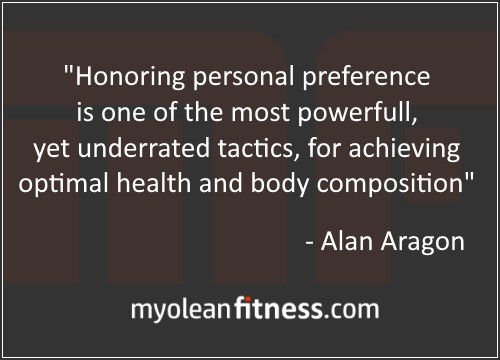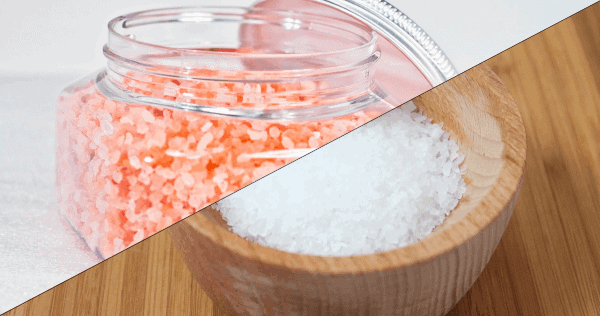
Your fat loss diet probably sucks.
Sorry to say this so bluntly, but there’s no point in being overly diplomatic about it. If this is your 237th attempt at losing weight, your fat loss diet does probably suck.
It’s important, however, to understand why your fat loss attempts have failed you in the past as well as what you can do differently this time.
So here are 5 reasons your fat loss diet sucks and what you can do to fix it.
1. Your fat loss diet is a liar
“Calories are irrelevant for fat loss”.
“Weight loss is not about calories”.
“The calories in – calories out model (CICO) doesn’t work”
Most of the popular fat loss diets are quick to make statements like the ones above and most people are quick to believe them. Of course, as we’ve talked about before in “the Secret to Fat Loss” and according to scientific research, energy balance is the primary determinant of fat loss.

So every time you start getting doubts about what causes fat loss, remember this:
Fat loss is about putting less energy into your body than what comes out of it.
“But I know this person who lost x amount of weight without counting calories”
Well, firstly, good for them! However, we never said that you have to count calories to lose weight. Your body does a great job of counting calories on its own.
Simply put, calories count, but you don’t have to count them.
Just to be crystal clear about this, we’re not saying that most diets fail because they don’t have you counting calories. They fail because they lead you to believe that energy balance is irrelevant.
Essentially, this is what a typical fat loss diet tries to do:
Step 1: Convince people that calories don’t matter.
Step 2: Use a point-measuring system/low carbohydrate approach/low fat diet approach/intermittent fasting/cutting out of food groups/paleo approach/etc to get people to eat fewer calories.
Step 3: Gloat about weight loss success without a change in caloric intake.
The above works like a charm for some people, until they reach a plateau, that is.
Then what? If calories are irrelevant for fat loss, what do you do when you’ve stopped losing weight? Do a more ketogenic diet? Fast for longer periods of time? Cut out more food groups? Become more paleo?
See where this is going? If you are led to believe that the primary determinant of fat loss (a sustained caloric deficit) doesn’t apply, you are bound to fail in the long-term because, when weight loss stalls, you’ll have nothing to adjust to keep making progress.
How to fix it:
Whatever fat loss diet you are on, remember that it works by helping you achieve and sustain a caloric deficit in the long term.
2. Your fat loss diet is too rigid
According to nutrition expert Alan Aragon, “ultimately, adherence is the make-or-break factor in any diet.”
In simple terms, if you can’t stick to your fat loss diet, it won’t work. And one of the worst things you can do for dietary adherence is to be overly rigid with your diet.
You see, rigid dieters have a very black-and-white approach to dieting. They are either “on” a diet, or “off” it. The problem with being “on” a diet is that it inherently refers to a temporary change in dietary behavior without, necessarily, achieving a long-term commitment to it.
In our experience, a fat loss diet that is too rigid, essentially fails for one of two reasons:
1. It works for a few weeks/months but doesn’t result in the long-term changes in behavior that are needed for weight loss maintenance. So when people reach a short- or long-term goal, they simply go back to their previous dietary habits, only to regain whatever weight they’ve lost (if not a little more).
2. The “on” or “off” aspect of these rigid fat loss diets means that, when you are “on” your diet, one cheat meal is enough to go “off” your diet. And going “off” your diet usually entails bingeing for at least a few days before going back “on” your diet and then repeating the cycle a few times before entirely giving up.

It’s also worth noting that research published in the Journal of Appetite suggests that “rigid dieting strategies, but not flexible dieting strategies, are associated with eating disorder symptoms and higher BMI in nonobese women.” Yep. Not only is rigid dieting associated with a higher BMI, but it’s also associated with symptoms of eating disorders.
How to fix it:
Don’t be overly restrictive with your fat loss diet and try not to think of it as being “on” or “off” it. Also, instead of making drastic changes to your diet from one day to the next, make a few smaller ones and give yourself time to develop them into habits before making any more changes.
Moreover, allow yourself some of the “junk foods” you really like every now and then. In the grand scheme of things, one “cheat meal” a week won’t hamper your weight loss efforts!
3. Your fat loss diet starts with unrealistic expectations
“Lose 20 pounds of fat in just three weeks, effortlessly!”
We often see claims like this one and we always think the same thing: “Yeah, right. Maybe if you chop a leg off.” Even that won’t be done “effortlessly” though.
Setting unrealistic expectations from the start is one of the worst things you can do and is bound to lead to failure, mainly for two reasons:
1. In an effort to lose that much fat, that fast, you’ll be doing some pretty extreme stuff, both in terms of dieting and exercise. And, as we’ve talked about before, extreme approaches to weight loss don’t usually work in the long-term because they aren’t sustainable.
2. The disappointment you’ll experience when you fail miserably in getting even close to such a fast rate of weight loss will, most probably, cause you to give up shortly after starting.
How to fix it:
With regards to the rate of weight loss, a loss of around 1% of your body weight per week is a good target. Faster and slower rates can also have their place, but, in our experience, for most people most of the time, this is the sweet spot. Bear in mind that weight loss is never a linear process, so the above is just an average.
With regards to the total amount of weight you’ll lose, this will depend on your starting point. If you are overweight, your long-term goal should be to reach a healthy body weight (BMI of 18.5-24.9). You can use this BMI calculator to see where you currently are. It’s important to note that, for people who are overweight, even a small amount of weight loss will be enough to significantly improve your health, so don’t get discouraged if you don’t reach your long-term goal straight away.
With regards to the “difficulty” of losing weight, don’t kid yourself. Dieting sucks. There’s a few things you can do to make it suck less, but, in general, losing weight is not an enjoyable process. You should at least expect that it will suck so that you don’t get caught by surprise.
4. Your fat loss diet isn’t for you
One of the most common reasons a fat loss diet fails is because it doesn’t suit you, your lifestyle and your food preferences.
Yes, a ketogenic diet may work perfectly well for your friend or for that guy you saw on the internet, but that doesn’t necessarily mean that it’s the best approach for you. If you love eating carbs and don’t perform well without them, why would you even consider going on a ketogenic diet?
The same goes for other dietary approaches.
If you enjoy eating several times per day, why are you trying to force an intermittent fasting approach on yourself? If you like eating meats and dairy, why are you trying to become a vegetarian?
How to fix it:
When choosing any dieting approach, you should take into account what you like and what is sustainable for you in the long-term. Otherwise, you won’t stick to it long enough to see results.
Good traits in a fat loss diet include a small to moderate caloric deficit, sufficient protein, a focus on a variety of micronutrient-dense, minimally processed foods and, of course, for it to be in line with your personal preferences.
Like Alan Aragon once said (yes, we love Alan): “Honoring personal preference is one of the most powerful, yet underrated, tactics for achieving optimal health and body composition.”
5. Your fat loss diet is too flexible
We’ll need to put on our helmets for this one, because the flexible dieters out there (well, those who think they are doing flexible dieting) are going to get pissed off at us.
Listen, folks. Having five protein shakes with added fiber powder, lots of pop tarts and a multivitamin to hit your macros, fiber and micronutrient intake isn’t what flexible dieting is about.
Flexible dieting is about hitting your macros with mostly micronutrient-dense, minimally processed foods, but also having the flexibility to enjoy a little junk food here and there or even some confectionery when you want to, without feeling guilt.
It involves having the knowledge to not freak out about missing a meal or when having some cake at your kid’s birthday party. It also usually entails stuffing yourself on Christmas day knowing full well that the “damage” you’ve done is minuscule in the grand scheme of things and that tomorrow is a new day.

“But what’s the problem with having lots of junk foods if I’m hitting my macros?”
Well, for starters, you are missing out on a bunch of vitamins, minerals, phytonutrients and other micronutrients which are important for health, training performance and muscle growth. It’s also worth noting that research suggests that micronutrient deficiencies may contribute to the development of obesity.
And no, fiber supplements and a multivitamin won’t cut it, since there seems to be more to fruits and vegetables than their fiber and vitamin content.
With regards to fat loss, the problem is that you end up making it harder for yourself, since most of your calories are coming from calorically-dense foods, leaving you feeling hungry and grumpy for most of the day.
Some will argue that this isn’t really a common reason why diets fail. Maybe we agree. Maybe we just really wanted to write about it and couldn’t be bothered doing an article just about this. Who knows?
How to fix it:
So how do you fix an overly flexible diet? Simple.
Aim to get the majority of your calories from a variety of minimally-processed, micronutrient-dense foods, while allowing yourself to enjoy “less clean” foods and treats that you like in moderation. This will ensure that you get adequate amounts of vitamins, minerals and other micronutrients, as well as sufficient amounts of dietary fiber, while also enjoying the satiating properties of calorically-sparse foods.
There you have it! If you found this post useful, check out our article with some of our best weight loss tips for faster and more effective weight loss.









Leave A Comment